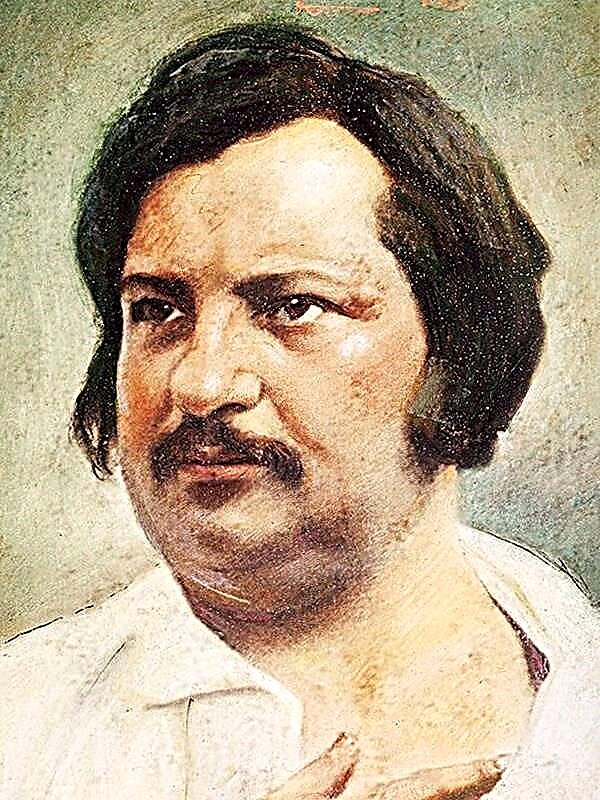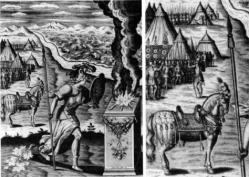Mikhail Yurievich Lermontov is a Russian poet, prose writer and playwright. His works embody a huge stream of thoughts of the author, which reflects his worldview position. In the poem "Clouds" he discusses the spiritual relationship of man and nature.
History of creation
Lermontov wrote a poem while in St. Petersburg. It was then, in 1840, before leaving for the Caucasus, in exile, waiting for departure and looking at the sky, the poet was plunged into thoughts that his fate was like the chaotic movement of clouds. Only now they themselves choose their path.
Indeed, the force, which, according to the author’s guesses, sets the clouds in motion, is a symbol of the state, which, at its whim, drives a person wherever he wants. So the king did to Lermontov, punishing him for a duel with the son of the French ambassador. But few people know that then Mikhail Yuryevich showed humanism and Christian meekness. His opponent shot him and missed, and the poet in response only shot into the air, although he could easily kill his opponent, because he was famous for his ability to shoot.
Genre, direction and size
The poem refers to philosophical lyrics. This is a reflection on freedom and dependence, fate and rebellion against it.
In an attempt to clearly convey all his emotions and feelings, Lermontov uses the poetic size of a dactyl. Rhyme cross.
Images and Symbols
- Describing the lyrical hero, the poet notes that he is a lonely, peaceful and calm person. There is no fuss around him, nothing happens that could prevent him from observing the clouds. He resigned himself to fate, seeing the inevitability of the elements, which carries him "from the sweet north to the south." Before us is an exile who has no right to choose. He compares his position with the way the clouds behave, and understands that they are happier than him, but he does not complain about his sad fate. We learn about his misfortune only from rhetorical questions addressed to the clouds. This restraint gives him a strong and persistent person.
- The clouds are a symbol of freedom. They are not burdened with their homeland, passions and other human bonds, therefore they cannot be expelled, offended or offended. In their mute insensibility and absolute homelessness lies the source of independence. And man, unlike the clouds, is not free: he is drawn to the earth from which he is separated.
- Slander, anger, envy or crime are those phenomena that made the poet leave his native north and go to a hot spot - to the Caucasus. The tsar knew very well that he was sending his subject to death, because then fierce battles took place in the south. Friends slandered Lermontov, staining the details of the duel. Envy and anger - attitude to Mikhail Lermontov in secular circles. It was his noble foes who arranged the duel. Crime is a hint of an official pretext for the author’s link. Then the nobles were punished for armed clarification of relations, this was considered a crime. But the poet is not in vain opposed to the crime of slander. This event was transmitted to the king in a distorted form, so his verdict was so harsh and adamant.
Themes and mood
One of the topics that the author touches upon is the relationship between personality and nature, precisely from the point of view of spiritual connection. A person and the world around him will never become one. The clouds have no feelings, have no attachments, their being is not constrained by anything. People are a pile of flaws and vices, passions and desires. Their consciousness hurts them, because, realizing the love of the homeland, it is already impossible to abandon it. Accordingly, this weakness can be exploited and send the patriot into exile.
Love for the father's house and the tragedy of the exile are the main theme of the poem. The poet is worried, but touchingly trying to hide it. His pain can be traced in detail. He calls the north sweet, and the "south side", on the contrary, is cold, the author called it somehow dryly and officially. He also speaks bitterly about the reasons for his exile, emphasizing the betrayal of friends.
Betrayal in friendship is the main problem in the poem. Poisonous slander deprived the lyrical hero of peace. Now he is being driven south like clouds. Moreover, this comparison is not accidental. Clouds are something unpleasant, something that darkens the day and deprives people of sunlight. So friends got rid of the hero, as from something bad and unnecessary. He interfered with them, but he himself did not suspect about it.
The mood from the poem is painful, sad. The longing in the heart of the hero is conveyed to the reader, and the image of a dark sky, weighed down by clouds, seems a difficult time in human life.
Main idea
The lyrical hero emphasizes the difference between himself and the clouds, he suffers because he loves his land, and they don’t feel pain, because they don’t love anything at all. The clouds are cold and insensitive, they are indifferent to separation from the sweet north. They are free, they have the right to choose, while the lyrical hero is not free and suffers from the inability to stay where he is comfortable. So, the main idea is that love for something is always addiction, a vise, and freedom is possible only in the absence of emotions.
We can also catch the personal meaning laid down by Mikhail Lermontov. He blames the intrigues of the upper world for his exile and does not admit guilt for the crime, which we, as we know, tried by all means to avoid. He spared the opponent, although he risked his life, for the enemy shot him without any hesitation. But, alas, the poet’s friends lied to him, and after this incident, the author’s gloomy attitude towards people becomes clear, which he will repeatedly demonstrate in his later lyrics.
Means of artistic expression
Throughout the poem, one can observe how the poet is cleverly controlled by epithets, metaphors, personifications ("clouds of heaven, eternal wanderers") and other various paths.
What you should pay attention to is how Lermontov uses epithets: “sweet north”, “azure steppe”, “barren cornfields”, “poisonous slander”. They have hidden meanings that allow us to catch his attitude to events.
In addition to them, to give the poem a certain integrity, the poet uses the inversion of the "pearl chain", "azure steppe."
A metaphor in the poem is a hidden comparison of the lyrical hero with clouds:
You rush like you are exiles












